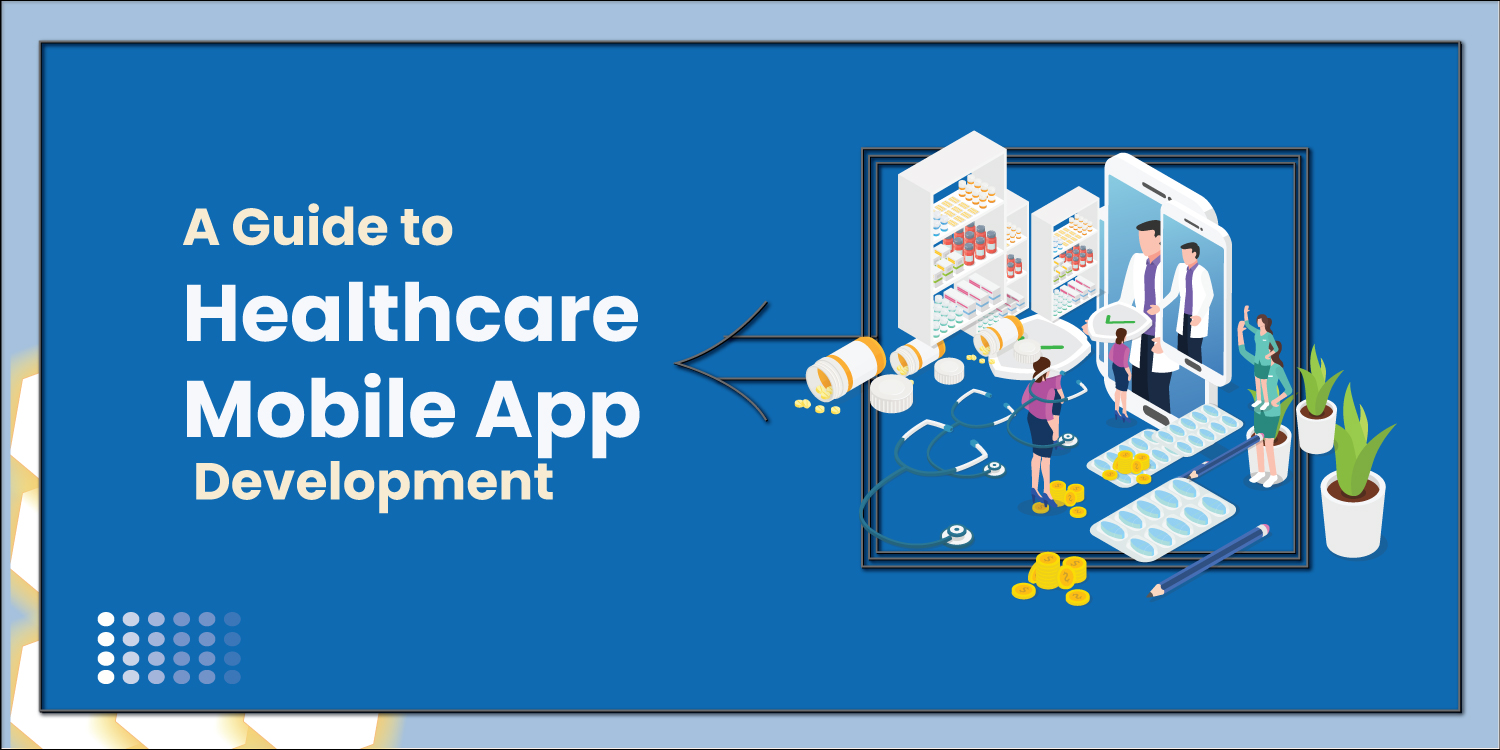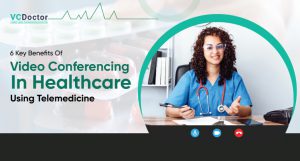A Guide to Healthcare Mobile App Development
Mobile app de refers to hardware and software components in healthcare mobile app development. Both work in parallel, providing the healthcare provider with up-to-date medical and other information to the remote patient.
The healthcare provider can also update the information with the same tool, allowing the healthcare provider to save the latest data.
This will enable healthcare providers to provide appropriate services to the patient. It is possible to analyze the patient’s health trend and identify real-time risk analysis.
This is also required by the safety point, in the absence of which the company may bring an action for defamation.
The mobile application development in healthcare also takes care of privacy issues and lets only the healthcare provider and the patient know the details of the care. Patients are encouraged to actively participate in the care plan, discuss with their caregivers, and make informed decisions. Therefore, it gives patients a sense of ownership.
Mobile apps help agents arrange appointments with doctors, monitor those appointments, and access them in an emergency, even on the go. These applications are comprehensive, automated, and designed to send reminders, alerts, and store notes.
These relate to background data centres that can record closed transactions and check them to determine the validity of transactions.
What is Healthcare Mobile App Development?
A mobile healthcare application is a software program designed to provide patients, physicians, and regular customers with health knowledge, resources, and solutions in the field of healthcare. The main uses of such healthcare applications are informing patients and healthcare professionals about preventive healthcare, supportive care, monitoring progress, managing consent, and assisting in clinical trials.
In short, healthcare applications are technology systems for smartphones and tablets that provide health-related services to the medical industry. In addition, the use of health and training applications increased during the pandemic.
Why Invest in a Healthcare Mobile App Development?
With the advent of smartphones, there was a need to pack AI into mobile-friendly healthcare solutions. As a result, the healthcare sector has witnessed many feature-rich applications designed and developed solely to make things easier telemedicine for patients and doctors. Among the many health applications based on artificial intelligence, Babylon deserves special mention. Babylon, often referred to as a medical application, analyzes patient data by comparing research and millions of data points from other patients around the world to diagnose the disease and produce an accurate report.
ADA, developed by a London-based healthcare company, is an artificial intelligence application developed in a similar way. Not only does it provide a diagnosis by asking patients for a symptom-based questionnaire, but it also offers corrective measures that need to be followed, such as booking an appointment with a professional doctor.
K Health is another application developed based on health data from more than 2 billion global health events that take patients through various rounds of ailment-based questions and then save the answers for analysis, providing an accurate diagnostic report.
Stats
The global market of healthcare mobile app development is projected to grow at a compound annual growth rate (CAGR) of 45.0% between 2020 and 2027. The rise of digitalization has transformed industries into their own businesses. The healthcare sector is highly affected by the digitalization system, which is driven by the increased use of smartphones and smooth access to the Internet.
As a result, the uptake and rapid diffusion of m-health technologies have grown exponentially in recent years, driven by their widespread use by patients and physicians. Fitness and medical applications continue to dominate the mobile healthcare market. The expansion of digital healthcare has significantly contributed to the growth of the market, which has gained momentum through the e-prescription system, manufacturers of portable devices, and providers of mobile healthcare applications.
Trends in Healthcare Mobile App Development
Healthcare mobile app development is setting new milestones in the digital field every day. These trends have come a long way since the creation of these mobile healthcare apps. Let’s look at some of the top trends in healthcare mobile apps.
1. AI in Healthcare
It should come as no surprise that AI finds strong applications in mobile healthcare. AI is already supporting the digital transformation of healthcare and changing the understanding of modern healthcare services. Its ability to transform the healthcare industry adds artificial intelligence to the list as one of the most important developments in healthcare applications. According to PwC, the market for artificial intelligence in healthcare is projected to grow to $ 6,662 million in 2021.
2. IoT in Healthcare
The potential of the Internet of Things is also promising for healthcare. A 2017 survey by Aruba Networks found that 60 per cent of healthcare organizations around the world have already deployed IoT devices on their premises, while the number will increase exponentially in the coming years.
Think of the example of promising and outstanding innovation, the “smart instrument.” The pill uses portable sensors to collect data, which is then transmitted to a mobile phone application, giving patients access to data about their vital functions.
3. AR / VR in Healthcare
The AR of the healthcare market is witnessing huge growth, with a market value expected to increase from USD 779.994 million in 2019 to USD 4057.144 million in 2025. Augmented Reality (AR) and Virtual Reality (VR) technologies are remarkably popular with healthcare experts. For their numerous applications, ranging from surgical preparation assessment to minimally invasive surgery and rehabilitation.
The impact of AR / VR is already visible in a number of health areas, but real increases are yet to come. Given its power and extensive applications in 3D operating room simulations and virtual training for surgeons, VR should help physicians perform better surgical procedures.
4. Cloud in Healthcare
The global healthcare cloud computing market is forecasted to cross 64.7 billion USD by the year 2025. The COVID-19 pandemic has only enhanced this growth trend.
Although cloud computing transcended the ages of global business, its enormous impact on the healthcare industry has only recently emerged. Therefore, as far as the healthcare industry is concerned, it is still considered to be full of potential.
5. Blockchain in Healthcare
Keeping these huge amounts of data secure is a major challenge for the healthcare industry. This concern is certainly justified by the fact that between 2007 and 2017, 176 million patient records were revealed during infringements.
The most widely used blockchain healthcare application today is the secure storage of important medical data. Blockchain has the amazing ability to keep an inviolable, decentralized, and transparent log of all patient data.
Types of Healthcare Mobile App Development
Before you start researching how to develop a medical application, you need to know the types of healthcare applications available on the market so that you can decide on the category and features that suit your needs. Healthcare applications can be divided into two major categories.
Applications for healthcare providers
- Applications for users (patients, regular users)
- Mobile applications for healthcare providers
Mobile applications for healthcare providers
1. Patient Monitoring
These applications help healthcare professionals monitor the condition and progress of their patients throughout their treatment. These services can store reports of patients’ medical tests, which doctors can access at any time.
2. Healthcare mobile app references and database
With these applications, doctors can keep all the information about different diseases, conditions, medications, and prescriptions in one place. These reference applications can help doctors stay up-to-date with medical knowledge.
3. Professional network
These applications are a social network for healthcare professionals where they can exchange knowledge, ask and answer questions, and interact as a community.
4. Medical Reception and Clinical Assistance Applications
Keeping diaries of physical handwritten appointments can be quite cumbersome and, in most cases, outdated. These applications can be used to seamlessly schedule appointments, inform patients and doctors about upcoming check-ups, schedule changes, and other important updates.
5. On-demand doctor
These applications, also known as telemedicine or telemedicine applications, help deliver telemedicine services through online consultations and are particularly important for emergency interventions.
Mobile applications for users
1. Patient health education
These applications can inform patients about different health conditions by sharing useful and up-to-date information.
2. Diagnosis
They are important for preventive purposes as they help patients to understand their symptoms and call for help if needed.
3. Reminder
They provide reminders to take medication, rest and follow other healthy practices. They are also used to monitor and develop healthy habits, such as staying hydrated, getting enough rest, and so on.
4. Health monitoring
These applications help patients with chronic conditions such as cancer, type 2 diabetes, and cardiovascular disease to monitor their condition around the clock and take the necessary precautions.
5. Mental health
These include meditation, self-care, stress relief, and good sleep applications that people use to take care of their mental health.
6. Healthy lifestyle
These include weight loss, exercise, exercise, and wellness applications that help people live healthier lives.
7. Nutrition
These include diet and weight loss applications and usually come with features such as healthy recipes, monitors, and healthy eating guides.
8. Women’s health
These include diet and weight loss applications and usually come with features such as healthy recipes, monitors, and healthy eating guides.
Compliances to Consider in Healthcare Mobile App Development
Unlike entertainment applications, healthcare applications go through a detailed validation process. The application should be HIPAA compliant, GDPR compliant, and comply with privacy and security policies depending on the target market.
The HIPAA standard applies to any medical software that collects, owns, and disseminates health information. So if you are considering bringing your healthcare applications to the American market, this is an aspect you should definitely address in your project. The following GitHub has a detailed procedure for creating HIPAA-compliant applications.
GDPR-compliant software complies with the rules for the collection, storage, and use of personal data in all EU countries. These rules were introduced in May 2018, and governments will impose significant fines in the event of a break.
Some other laws and regulations apply in different markets. For example, Canada has enacted the PIPEDA Act for the use of personal information in software and not only in m-health applications. The Data Protection Act 1998 is a guide to the development of healthcare applications in the United Kingdom.
Another important point in creating secure healthcare applications is making payments. The PCI SSC organization can assist with the necessary aspects and obtain a license.
In particular, consider developing your own applications that are more secure than cross-platform. Natural medical applications are designed and developed for a specific operating system. They are divided by reliability and level of performance. In addition, following Apple’s guidelines and/or policies regarding the processing of Google’s sensitive personal information during the development of healthcare applications is essential for approval in the App Store.
Healthcare Mobile App Development Process
The healthcare mobile app development process is not as complicated as you think. With a strategic plan in place, you can easily develop a flawless app. Here is a simple and result-oriented process that you can consider.
1. Identify the target group and their needs
The mobile healthcare industry is already saturated. Therefore, it is better if the developers of each new application have to have carried out intensive research to find out how to create a medical application and understand its customers. It also involves identifying the issues they need to address for their clients to create a truly useful healthcare application.
2. Pre-development planning
Once you have identified which application you want to develop, for whom you want to develop it, and how to develop a medical application, the next step is to officially launch the project. Define the appropriate specifications and requirements in terms of features, costs, resources, and staff to build the application.
This stage determines what professionals you need, what tools and technologies you need, what technological materials you need for development, (government) certification requirements, development costs (budget), and so on. This stage culminates in the creation of proof of concept. Before you start full development, you want to make sure that the project is feasible by introducing a minimum of functionality without going to market.
a. Features to Consider
Features are the MSP of any mobile app. Make sure to ask your healthcare mobile app development company such as VCDoctor to embed advanced features into your app that gets the user’s attention. Here are some features to consider.
User profile
This is the sign-up process during which you advertise account creation in the Healthcare app. This allows patients to enter their personal information (name, gender, age, etc.).
File storage
When you develop medical applications, such as EHR (electronic health records), medical data, and other information that doctors store, healthcare professionals can store their data in the solution, including test results, x-rays, examinations, and other patient information.
Book an appointment
This feature allows users to book a doctor’s appointment. However, it must also be linked to the doctor’s journey so that the patient can confirm it. In addition to consulting a doctor, you can even help consumers plan laboratory tests or encourage them to book an appointment with their doctors.
Geolocation
Without a geographic location, every mobile healthcare application that serves patients is incomplete. One of the key services in developing a mobile healthcare application is to help people find a doctor. Embedding a HIPAA-compliant geographic location allows smartphone users to find cardiologists near their location.
Chatbot
The conversation is another very tempting aspect when designing healthcare applications. So you need to encourage users, app doctors, and doctors to talk to each other. In general, AI chatbots come with machine learning and in-depth learning algorithms.
Intra – application payments
There is an increasing trend towards the harmonization of mobile payments, as online payments offer a fantastic user experience with just a few taps. It delivers the feasibility to the customers to make transactions seamlessly.
Push notifications
This is one of the key features that appear on the screen of a mobile device, and users are aware of any updates that healthcare companies want to share. In the past, it reminded users of a doctor’s appointment or a prescription regimen that is important for patients’ medications.
Symptom checker
Symptom checkers are web calculators that ask users to enter information about the signs and symptoms of their illness, along with their gender, age, and location.
Video conferencing
Going to the doctor may be convenient for your mobile healthcare app user, but you may not be planning to upgrade your chat system to video conferencing.
Ratings and reviews
If healthcare professionals are members of a healthcare organization, patients should be able to find a doctor’s assessment and read user feedback.
Templates for clinical specialities
Physicians must report to patients in order to provide healthcare. In addition, they often treat people with the same problems and have to say the same things over and over again.
Analytics and reports
If you want to create daily updates on medical app complaints and consumer behaviour, you may need to update your medical app development.
Social integration
The registration method should be as simple as possible. It is therefore important that you have access to social logins through social media accounts.
Multilingual and cloud management
To increase the use of mobile healthcare, users should be able to use m-health software in their preferred or natural language.
b. Tech Stack to Consider
In order to make the features of your mobile healthcare app, you will need a high-quality tech stack. Remember, a high-end tech stack can affect your budget, but it will deliver excellent results in the long end. Here is an ideal tech stack for mobile healthcare app development.
Programming Languages
- Kotlin
- Swift
- PHP
- Node js
IDE
- Xcode
- Android Studio
- Cloud Storage
- Amazon S3
Database
- Mongo DB
- Redis
- MySQL
- PostgreSQL
Utilities
- Google Analytics
- Mixpanel
- Visual Website Optimizer
Payment Gateways
- Braintree
- Paypal
- Stripe
Deployment platforms
- Cloud
- SaaS
- Web
- iOS Native
- Android Native
3. Development
Various programming languages that may be considered include Angular, Vue, and React for the front end; Node.js, and Ruby on Rails for the backend purposes; React for developing Native, Ionic, and Flutter mobile applications, etc. These all form a stack of technology that largely determines the performance of an application.
4. Quality assurance
To create a mobile healthcare application, keep in mind that no matter how much testing and debugging developers do, they still rely on quality assurance testing to eliminate blind spots and ensure that the application works to its maximum.
This step is crucial because any issues identified must be resolved before the application can be published.
5. Product release and ongoing support
Once the application is deployed, it will still need ongoing support. Many companies decide to leave their external development team at this stage and leave the rest to the in-house team. This may involve a continuous iteration of the application to ensure complete stability at the outset.
The Bottomline
It is quite clear that creating applications for healthcare providers is a worthwhile idea. But you have to seize the moment, don’t wait until the healthcare market is saturated. You will find it difficult to compete with other applications of the same type later; there will be too many of them. To begin the development of a mobile health app without delay or hesitation. And do it now.
If you are unsure which healthcare app development company to choose as a healthcare application developer, at VCDoctor, we will be happy to help you. Our experts are highly qualified and hardworking. We have strong experience, we know everything about developing mobile applications, and we are quite ready to take on all the challenges in the field of mobile healthcare.




